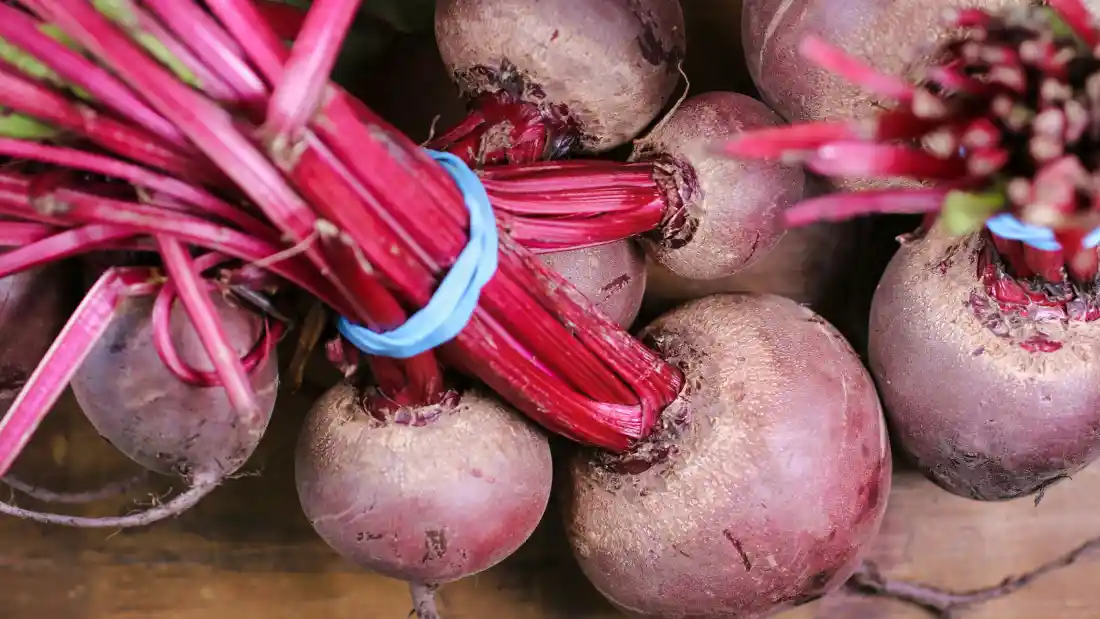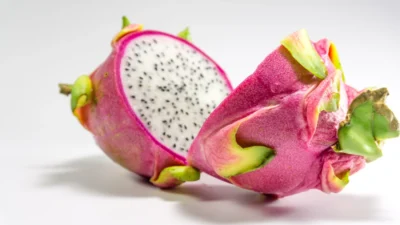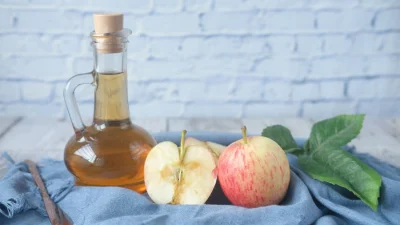10 plant-based foods to lower blood pressure

One-third of adults in England have high blood pressure (hypertension) and around three in every ten may not know it; this equates to around 4.2 million adults with undiagnosed hypertension. This serious condition can increase the risk of heart disease, stroke and kidney disease. While various factors contribute to hypertension, an unhealthy diet, particularly one high in salt and saturated fat often found in animal-based foods, plays a key role. Fortunately, managing blood pressure effectively is possible, and adopting a plant-based diet offers a powerful solution. Here are 10 vegan foods known for their blood pressure-lowering properties:
1. Bananas
This popular fruit is packed with potassium, a mineral that plays a vital role in managing blood pressure. Potassium helps the body get rid of excess sodium and eases tension in the walls of blood vessels, both of which contribute to lower blood pressure. Some studies even suggest that increasing your potassium intake through foods like bananas may be more effective than just reducing sodium.
2. Berries
Berries are bursting with antioxidants called anthocyanins, which gives them their bright colour. Anthocyanins may help lower blood pressure by promoting the production of nitric oxide, a molecule that helps blood vessels relax and widen, improving blood flow. A 2023 double-blind randomised controlled trial found that blueberries reduced blood pressure in healthy older adults. So, for a vibrant life and healthy heart, make berries one of your daily blood pressure allies!
3. Watermelon
This refreshing summertime fruit contains an amino acid called L-citrulline. In the body, L-citrulline is converted to L-arginine, which then helps produce nitric oxide. As with berries, nitric oxide helps relax and widen arteries, leading to lower blood pressure. Some research suggests that watermelon supplementation may help lower blood pressure. Watermelon might just be your juicy secret weapon for healthy blood pressure this summer and beyond!
4. Kale (and other dark leafy greens)
Leafy greens like kale, spinach, and spring greens are high in dietary nitrates. The body converts these nitrates into nitric oxide, which, in case you haven’t caught on yet, is vital for managing blood pressure. They are also good sources of potassium and magnesium, which contribute to healthy blood pressure levels. A 2021 study that followed its participants for 23 years, found that those with the highest vegetable nitrate intake had the lowest blood pressure. Is there anything kale can’t do?!
5. Beetroot
Similar to leafy greens, beetroot and beetroot juice are rich in nitrates which are converted into the all-important nitric oxide. Several studies have shown that beetroot juice may lower blood pressure and a 2018 systematic review concluded that it “should be promoted as a key component of a healthy lifestyle to control blood pressure in healthy and hypertensive individuals.” Make beetroot a star player on your plate to beat high blood pressure!
6. Lentils and chickpeas
These pulses are packed with nutrients that can help regulate blood pressure, including fibre, potassium, magnesium and protein. The high fibre content contributes to overall heart health, and the minerals help maintain healthy blood pressure levels. Researchers analysing data from the EPIC Norfolk cohort found that legume intake of 55 to 70 grams a day was associated with a lower risk of hypertension. For a powerhouse of nutrients that champion healthy blood pressure, make legumes a staple in your diet!
7. Flaxseed
Flaxseeds are a rich source of omega-3 fatty acids and higher levels of omega-3 fats in the diet may help lower the risk of high blood pressure. Researchers suggest that the ALA omega-3 fats in flaxseeds reduce the byproducts of fatty acids (oxylipins) in our blood therefore improving the blood flow through our arteries and reducing blood pressure. Flaxseeds also contain a significant amount of fibre, which can contribute to healthy blood pressure. A 2013 randomised control trial concluded that “flaxseed induced one of the most potent antihypertensive effects achieved by a dietary intervention” and since then other studies have confirmed these findings, including a 2024 meta-analysis of randomised control trials. Always use ground flaxseeds as whole seeds can pass straight through you!
8. Oats
Oats contain a type of soluble fibre called beta-glucans which have been shown to have blood-pressure lowering effects. A 2022 systematic review and meta-analysis of randomised controlled trials analysed the effects of oat consumption on blood pressure and found that both systolic and diastolic blood pressure were “significantly reduced” when the dosage of oat consumption exceeded five grams of beta-glucans a day (about 100 grams of oats), or the oat consumption duration was longer than eight weeks. So, start your day the heart-healthy way – make oats a regular part of your routine for significant blood pressure benefits!
9. Onions
Onions contain quercetin, a flavonoid antioxidant (also found in apples and berries) that may help lower high blood pressure. A 2007 randomised control trial found that quercetin reduced blood pressure in patients with hypertension and a more recent 2022 meta-analysis concluded that quercetin may also reduce blood pressure in those with normal and elevated – but not high – blood pressure. Onion itself has been put to the test and a 2015 randomised double-blinded placebo-controlled cross-over trial found that quercetin from onion skin extract lowered blood pressure in those with hypertension. So, peel back the layers to a healthier heart – onions and their quercetin offer a potent way to potentially lower blood pressure!
10. Cinnamon
This aromatic spice contains a compound called cinnamaldehyde that may help dilate and relax blood vessels, helping to lower blood pressure. A 2021 double-blind, randomised, placebo-controlled trial found that the group taking the cinnamon experienced a significant decrease in systolic blood pressure. Although more high-quality studies are needed, a 2024 umbrella review of the meta-analyses of randomised controlled trials supported “the usefulness of cinnamon consumption in modulating blood pressure.” More than just a warm aroma, cinnamon might hold the key to relaxed blood vessels and healthier blood pressure!
While managing healthy blood pressure involves limiting salt and saturated fat found in foods like processed red meat and certain dairy, embracing a plant-based diet offers significant benefits. A 2023 systematic review confirms that plant-based diets are linked to lower blood pressure and improved cardiovascular health compared to animal-based diets. Take control of your wellbeing: explore the power of a vegan lifestyle for a healthier heart and lower blood pressure.







